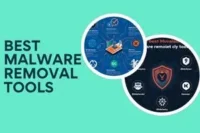Small Business Automation Solutions -The Key to Efficiency and Growth
Published: 10 Apr 2025
In today’s competitive landscape, small businesses must operate efficiently to stay ahead. Small Business Automation Solutions provide a cost-effective way to streamline operations, reduce manual workload, and enhance productivity.

Whether it’s customer service, marketing, or financial management, leveraging automation tools can significantly impact a business’s growth.
Why Small Businesses Need Automation
Automation isn’t just for large enterprises. Small Business Automation Solutions help smaller companies achieve big results through:
Time Savings: Automating repetitive tasks frees up time for strategic growth.
Cost Efficiency: Reduces labor costs and minimizes human errors.
Scalability: Helps businesses handle increased workloads without hiring additional staff.
Better Customer Experience: Ensures prompt responses, personalized interactions, and improved service delivery.
Best Automation Solutions for Small Businesses
Small businesses can benefit massively from automation- the key is knowing where to start. The image below showcases top automation solutions, including marketing automation for small businesses, that help streamline daily operations and boost growth.

Now, let’s explore each type of tool and see how it fits into a small business setup – starting with CRM systems, followed by marketing, finance, project management, and sales automation.
1. Customer Relationship Management (CRM) Tools
A CRM system like HubSpot, Zoho, or Salesforce automates lead management, email follow-ups, and customer interactions. It keeps all customer data in one place, improving relationships and retention.
2. Email Marketing & Social Media Automation
Marketing automation tools such as Mailchimp, ActiveCampaign, and Hootsuite allow small businesses to schedule posts, send personalized emails, and track engagement – saving hours of manual work.
3. Accounting and Financial Automation
Managing finances manually is time-consuming. Solutions like QuickBooks, Xero, and FreshBooks automate invoicing, expense tracking, and tax calculations, ensuring compliance and accuracy.
4. Workflow & Project Management Tools
Platforms such as Trello, Asana, and Monday.com help teams collaborate efficiently by automating task assignments, reminders, and reporting.
5. E-commerce and Sales Automation
For online businesses, tools like Shopify, WooCommerce, and Zapier streamline order processing, inventory management, and sales tracking, making operations smoother.
Implementing Automation – Best Practices
Start Small: Identify the most time-consuming tasks and automate them first.
Choose the Right Tools: Select platforms that integrate well with your existing workflow.

Monitor & Optimize: Regularly analyze performance and tweak automation processes for efficiency.
Train Your Team: Ensure employees understand and effectively use automation tools.
Tips for Success with Automation
- Start with one tool and learn it well.
- Ask for help if you’re stuck – many tools have great customer support.
- Track your progress by measuring how much time you save with automation.
Conclusion
Automation is no longer a luxury – it’s a necessity for small businesses looking to grow and thrive. By implementing the right tools and strategies, you can save time, reduce costs, and improve customer satisfaction. Small Business Automation Solutions empower you to start small, stay consistent, and watch your business transform.
FAQs About Small Business Automation Solutions
If you’re new to automation, marketing automation is usually the best first step. Tools like Mailchimp or Hootsuite let you automate emails, newsletters, and social media posts with just a few clicks. They are simple to set up, affordable, and save you hours every week. This makes them perfect for beginners who want quick results.
Yes, automation works great even for one-person businesses. Tools like Zapier or QuickBooks can handle boring tasks like sending invoices, tracking expenses, or moving data between apps. Instead of wasting time on manual work, you can focus on growth and customer service.
Start by spotting repetitive tasks that eat up your time daily. Common ones include invoicing, posting on social media, or updating spreadsheets. If you find yourself doing the same thing again and again, it’s probably something automation can do faster and with fewer mistakes.
No, automation doesn’t have to cost a fortune. Many tools, like HubSpot CRM and Trello, have free or very low-cost versions. Even paid plans are usually affordable, and the time you save is worth much more than the subscription fee.
CRM automation is about managing customer relationships, like sending follow-ups or tracking interactions. Workflow automation, on the other hand, connects different apps to move data and trigger actions automatically. Together, they save time and make your business more efficient.
Absolutely! Tools like TradeGecko or Cin7 can track stock levels automatically. They notify you when products are running low, update sales data, and even sync with your online store. This prevents mistakes, saves time, and ensures you never run out of popular items.
No, automation isn’t here to take jobs away. Instead, it handles repetitive, boring tasks so your team can focus on creativity, customer service, and big-picture strategies. Think of automation as an assistant that makes your employees more productive.
It depends on the tool and task. Some tools, like Zapier, can be set up in under an hour. More advanced systems may take a few days to fully configure. The good news is, once set up, automation saves you time every single day.
Don’t worry—most automation tools are designed for non-tech users. They come with simple dashboards, templates, and tutorials to guide you step by step. Many also offer customer support or live chat if you get stuck. You don’t need to be a tech expert to use them.
Yes! Tools like Zendesk or chatbots powered by AI (like ChatGPT) can handle common customer questions instantly. They can reply to FAQs, provide order updates, or transfer complex issues to a real person. This gives customers quick support while saving your team time.

- Be Respectful
- Stay Relevant
- Stay Positive
- True Feedback
- Encourage Discussion
- Avoid Spamming
- No Fake News
- Don't Copy-Paste
- No Personal Attacks

- Be Respectful
- Stay Relevant
- Stay Positive
- True Feedback
- Encourage Discussion
- Avoid Spamming
- No Fake News
- Don't Copy-Paste
- No Personal Attacks





